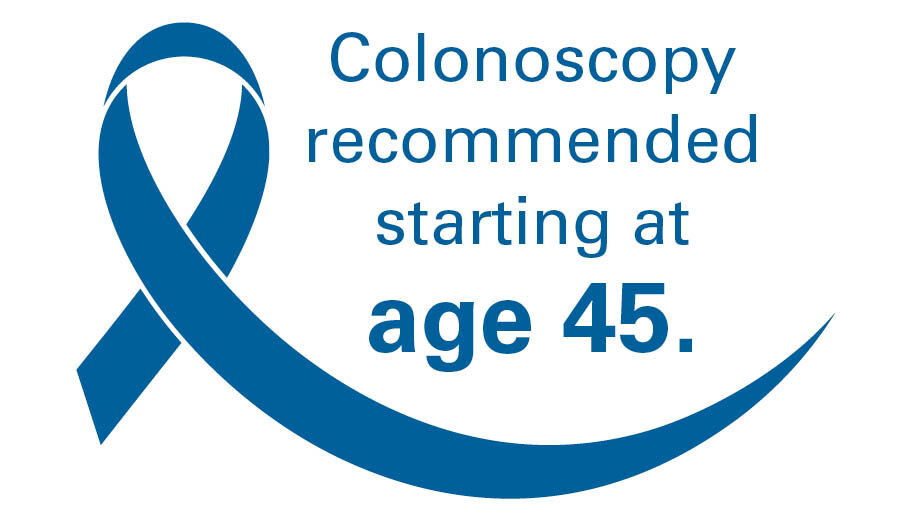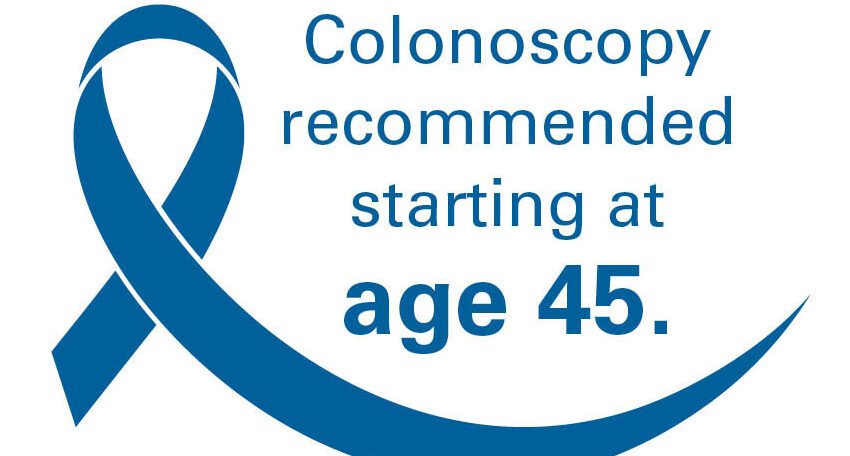Did you know? Your first colonoscopy is now recommended at age 45
March 22, 2022
This paid piece is sponsored by Avera Health.
It used to be 50. Now, those approaching their 45th birthday should talk to their primary care provider about a colonoscopy.
When you schedule this exam, you might be saving your life.
“It’s an exam that can stop colorectal cancer, a common – and deadly – disease,” said Dr. R. Towner Lapp, a gastroenterologist with Avera Medical Group Gastroenterology. “We stand with the American Cancer Association: Get your first colonoscopy at 45.”
Why the guidelines changed
For two decades, experts in the field of oncology and gastroenterology noticed an increase of more than 10 percent in colorectal cancers occurring in people age 20 to 50.
“A recent study showed people ages 20 to 39 have had the sharpest increase in early-onset cancers,” Lapp said. “These cancers, known as adenocarcinomas, are higher in non-Hispanic Black and Hispanic populations but proven to be higher for all people in this age.”
“The evidence shows that the sooner the colon exam occurs, the more likely we can either detect it or, better yet, stop colon cancer,” Lapp said.
Why colonoscopy is best
Colonoscopy is widely considered the best exam because doctors can detect and remove precancerous polyps.
“Polyps form, but they are often precancerous to start,” Lapp said. “With colonoscopy, we can get them before they develop.”
Physicians use camera-equipped scopes to explore your colon. If they find a polyp, they remove it. If they find a lesion, they take a sample that goes to the lab. Results can determine if you need further surgery or treatment.
With anything cancer, early detection is better.
“This exam offers the best chance for a better outcome should you have cancer,” Lapp said. “Other screening tests might be easier, but they have limits.”
Tests that review stool samples can detect blood or DNA changes in the cells of the stool. But when they come back positive, what’s the next step? Colonoscopy.
“Other tests won’t let me spot and remove a polyp in my patients,” Lapp said. “Yet any screening test for colon cancer is better than no screening at all.”
Lapp said you should discuss all options with your provider.
Colon cancer symptoms
Talk to your doctor if you experience any of these:
- Blood in your stools. Sometimes blood will lead to stools that are tarlike and black in color.
- Internal bleeding can cause you to feel tired.
- Constant gas, cramps or bloating, along with discomfort.
- Change in bowel habits, for example, going from once a day to a few times a day, especially if the change is abrupt or dramatic.
- Unintentional weight loss.
“Bathroom changes happen, but sometimes your body’s telling you something,” Lapp said. “It’s always better to listen. Then talk to your provider.”
It’s better to have your provider find nothing than ignore a serious health risk.
How to prevent colon cancer
Colon cancer happens to healthy people as well as people who eat and drink too much pizza and beer. Your genetic makeup is something you cannot change. But if you’re aware of it, you can lower your risk.
“You can ask your parents and grandparents if there’s a cancer history in your family,” Lapp said. “If there’s a family history of colorectal cancer, you might start colonoscopy before 45.”
He added that you might need to bring it up a few times. Cancer talk makes some people uncomfortable, but it can lead to lifesaving action.
You can lower your risk of colon cancer with these steps too:
- Exercise regularly.
- Maintain a healthy weight.
- Follow a diet low in fat and high in fiber.
- See your provider at least annually.
Simply put: If you’re 45, or close, talk to your provider about colon cancer. If you’re older and have postponed this talk, step up now. Get it on your schedule. It can literally save your life.
Learn more at Avera.org/ColonScreen.






